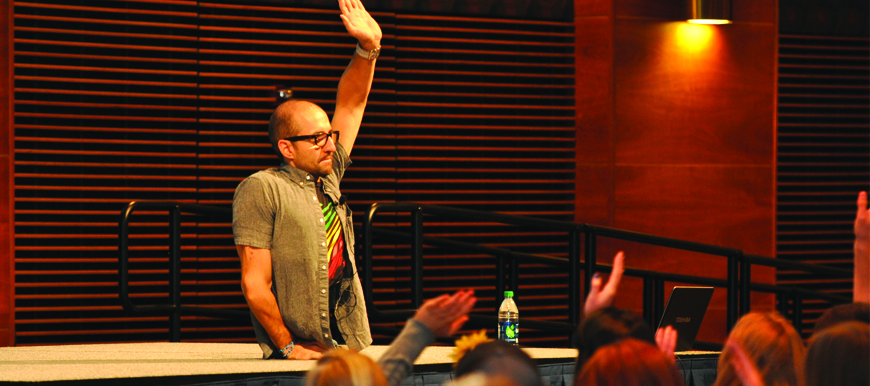Common Hour cancelled
After seeking student, faculty and staff input, the Utah State University executive committee decided to discontinue Common Hour following the spring 2015 semester.
“We found that we simply could not handle the student need for classes if we didn’t put that hour to use,” said Tim Vitale, director of public relations and marketing for USU, in a prepared statement. “The day just wasn’t long enough to get students into the classrooms they needed without taking advantage of that hour.”
Results of a survey sent out at the beginning of winter break found the majority of participants were neither favorable nor unfavorable of Common Hour, at 38 percent of more than 3,000 participants.
“The survey showed us that the Common Hour wasn’t being used as it was originally intended,” said Assistant Provost Andi McCabe in an email to The Utah Statesman. “Few students attended Common Hour events regularly, and many didn’t even know what the Common Hour was.”
The survey asked participants if Common Hour affected their ability to schedule classes, attend campus events, schedule study time or meetings and commute to campus. The majority of responses indicated it did not make it easier or harder to do any of those things.
The 11:30 a.m. to 12:45 p.m. gap in the Wednesday schedule, used for campus-wide activities and meetings was founded in 2012 by USUSA, then ASUSU. But since its implementation, some students and faculty members have found difficulty in scheduling classes.
“It’s a matter of space and time utilization,” McCabe said. “We need to put that hour to use by teaching classes at that time and not letting classrooms sit vacant for any period during those prime hours.”
USUSA President Douglas Fiefia said the majority of executive council members would’ve liked to make Common Hour work for students and faculty by sorting out the bigger issue of classroom scheduling.
“We understand that because it is during prime class time and classrooms go unused moving the schedule back an hour, but we believe that the experience that students have at these lectures are worth it,” Fiefia said in an email to The Utah Statesman. “I believe that growth will continue to happen at USU and that classroom space will always be an issue that is coupled with growth. I think that getting rid of Common Hour was putting a bandaid on a bigger issue.”
Vitale said this will not deter opportunities to invite speakers to campus.
“The only difference is that there will not be a block of time set aside where no classes are taught,” he said. “As a result, speakers could be brought in any day or time that is convenient for both students and the speakers’ schedules.”
McCabe said this will have “little impact on the campus community.”
“The university, colleges and departments will continue to host guest speakers that the students will be interested in hearing. There will not be a specific day (and) time set aside for these, but they will be scheduled when most convenient for those who want to participate. Having this open calendar would also allow high-profile speakers to accept invitations without the constraints of Common Hour schedule.”
Fiefia said discontinuing the program likely will not affect students “too much negatively or positively,” but said he feels the cancellation is premature.
“Personally I believe that we got rid of a program that could have positively enhanced the student’s experience here at USU,” he wrote.
— manda.perkins@hotmail.com
Twitter: @perkins_manda

